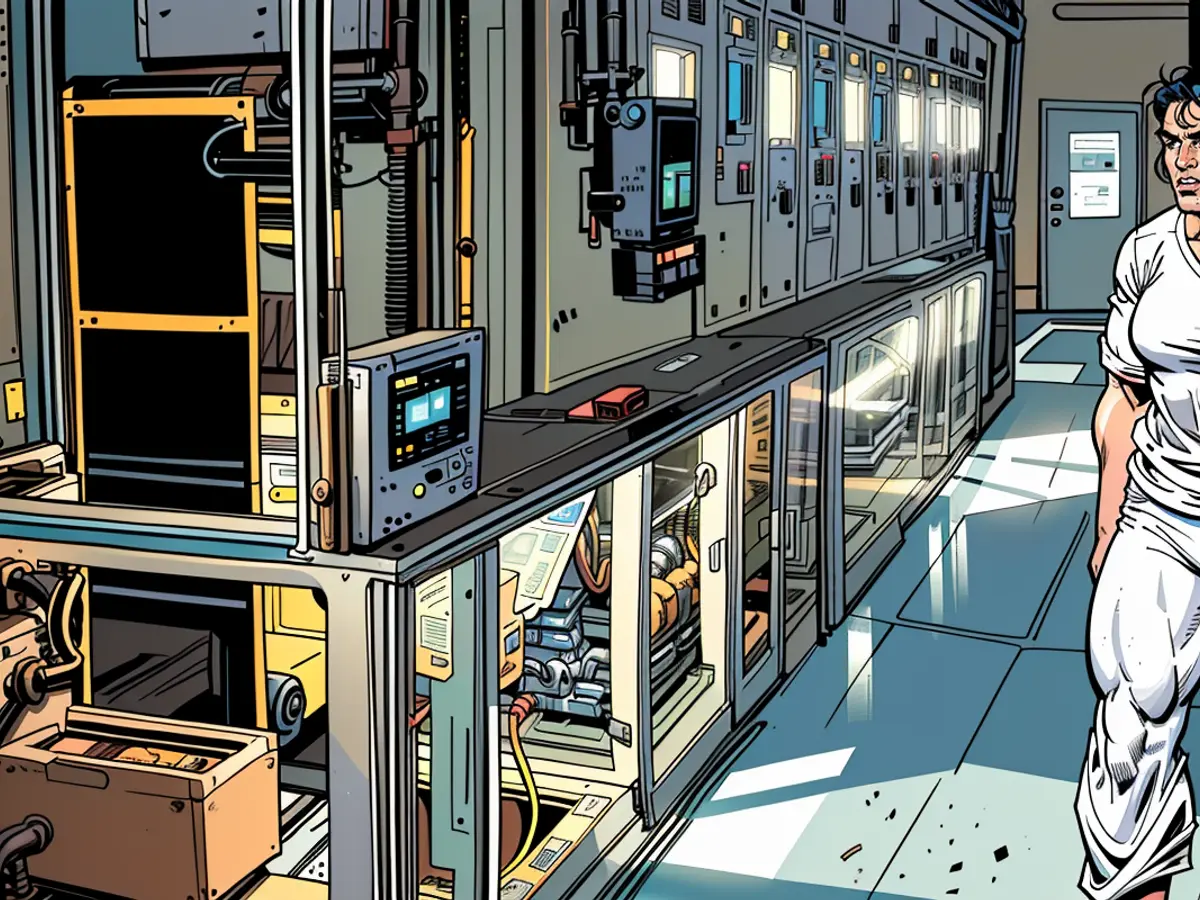Auto production company rebrands itself. - Volkswagen plans to establish a sizable energy storage plant in northern Germany.
Volkswagen Group is dipping its toes into the world of large battery storage systems for the power grid. Plans are underway to launch a "Power Center" in Germany, which aims to store green energy, revealed Technology Board Member Thomas Schmall in Berlin recently. The exact location remains unknown, but groundbreaking is scheduled in the next 6 to 8 weeks and the facility will commence operation by early next year. "We're making things real here," said Schmall.
The project is being spearheaded by VW's charging network division Elli. The initial capacity of this facility clocks in at 700 megawatt-hours, but could potentially expand to a gigawatt-hour. This amount of energy is enough to replace a conventional gas power plant. More "Power Centers" are in the pipeline, creating new business opportunities for the company.
The primary objective of these facilities is to serve as buffers for wind and solar energy, thus helping maintain the stability of the power grid. "Investing in stationary battery storage systems is a vital step forward for the sustainable transformation of energy supply," shared Schmall. When there's an oversupply of wind and solar power, these turbines and panels have to be shut down. But with large battery storage systems, the situation can be changed.
VW anticipates a tenfold increase in the demand for such battery storage systems in Germany over the next few years. So far, there's a mere one gigawatt-hour of storage capacity available in the country. "We'll double that with this one Power Center alone," said Schmall.
Another use for used electric car batteries will be explored as well. Although these batteries may not hold enough energy for cars anymore, they can still store enough electricity for large-scale storage. For the inaugural facility, factory-new batteries will have to suffice, as there are yet not enough used batteries from electric cars. "They're just coming to us now," admitted Schmall. However, VW intends to use retired electric car batteries in future "Power Centers" before recycling them in step three.
Even before this, VW opened a smaller Power Center in Kassel last year. Since then, Elli has been participating in the power exchange with charging network. There, they've employed used battery systems from the discontinued electric mini-car E-Up. Other car manufacturers like BMW and Audi are also dabbling in using used batteries for stationary energy storage, but so far, only for their own energy consumption or at their charging stations.
Read also:
Volkswagen's plan to establish a large battery storage plant in northern Germany aligns with their shift towards alternative energies. This move is significant as Germany has a limited capacity of 1 gigawatt-hour for large-scale electricity storage, which VW aims to double with their upcoming 'Power Center'. The facility will utilize factory-new batteries initially, but VW intends to use retired electric car batteries in future storage plants before recycling them.
Berlin has been privy to Volkswagen Group's ambitions in the realm of large battery storage systems, with Technology Board Member Thomas Schmall revealing plans for a 700 megawatt-hour 'Power Center' in the city. This project aims to store green energy and help maintain the stability of the power grid, acting as a buffer for wind and solar energy oversupply.
The impact on the German power grid is substantial, as VW anticipates a tenfold increase in the demand for such battery storage systems over the next few years. This will necessitate the creation of more 'Power Centers', benefiting VW with new business opportunities and contributing to the sustainable transformation of energy supply in the country.
Volkswagen's charging network division Elli is spearheading the project, with plans to potentially expand the initial capacity of the facility to a gigawatt-hour. Northern Germany will likely be the home to this game-changing energy storage plant, further propelling Germany's shift from gas-fired power plants towards renewable energy sources.
Investing in large-scale battery storage systems, like the proposed 'Power Center', is seen as a crucial step by VW's leaders, such as Thomas Schmall. This represents a significant shift away from reliance on traditional energy sources, like gas-fired power plants, towards a Greener and more sustainable energy future.
Larger electric car manufacturers such as VW, BMW, and Audi are among those experimenting with used batteries for stationary energy storage. While VW's inaugural facility will utilize factory-new batteries, the future 'Power Centers' may incorporate retired electric car batteries according to company plans. By upcycling used batteries, these manufacturers are not only contributing to the reduction of electronic waste but also boosting the potential for sustainable energy storage.








